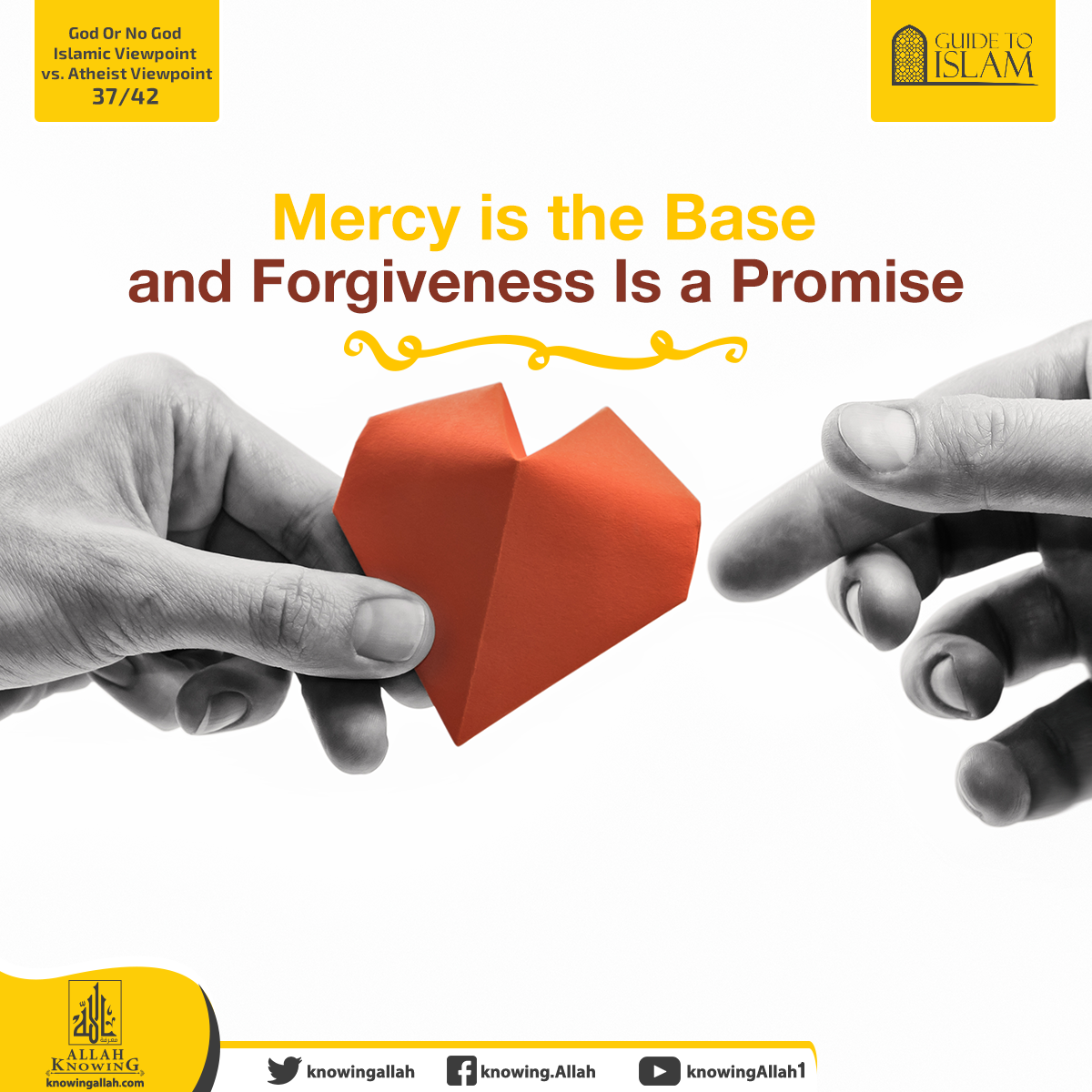Mercy is the Base … and Forgiveness Is a Promise
1. In Islam, one of God’s most emphasized attributes is mercy. All the chapters of the Qur’an except one begin with the statement “In the Name of God, the Merciful, the Compassionate,” known as the Basmallah. The Basmallah is also the common statement that Muslims should recite before doing any action. It thus ingrains in them the confidence that God’s ultimate design for creation is one of care and mercy.
2. A hadith also tells Muslims that “God’s Mercy precedes His Anger,” while the Qur’an states that God’s Mercy embraces all things, not just some things, which signifies that mercy is the dominant characteristic underlying God’s actions.
3. Islam does not reduce God’s attributes to power, knowledge, and goodness, and leave out His sovereignty, His wisdom, His judgment, His anger, and His punishment. Rather, God has ninety-nine names and attributes, based on a saying of Prophet Muhammad (peace be upon him). They are broadly categorized into two kinds: attributes of Jamal (beauty and beneficence) and Jalal (grandeur, power, and majesty). He is the Kind, the Wise, the Merciful, the Loving, the Forbearing, the Pardoning, the Generous, and the Protector. On the other side, He is the Mighty, the Just, the Judge, the Watchful, the Avenger, the Humbler, and the Compeller.
4. A one-sided view of God as only loving or punishing will result in a wrong idea of what God is truly like; the Qur’an points this out, saying: “Know that God is Severe in punishment and that God is (also) Most-Forgiving, Ever-Merciful.” (Qur’an 5:98). This implies that a correct relationship with God and outlook on life requires experiencing the full range of God’s attributes — those of Jamal as well as those of Jalal — in a manner appropriate to each. Together, these two aspects instill the right balance of fear of and hope in God, allowing neither to overwhelm the other. (Fear and hope are like the two wings of a bird – they are both needed to fly. If they are balanced, the bird flies properly. But if one of them stalls, the bird will fall down and will not be able to fly).
5. Testing involves suffering; according to the Qur’an, suffering is an inevitable and natural part of worldly life:
“Verily, We (God) have created the human into hardship.”
(90:4)
6. Human life is a process of continual hardship. Each stage brings its own set of challenges, often with increasing complexity, and every human will continue to face different struggles in life until death, as stated in the Qur’an:
“Verily, you are ever toiling on towards your Lord – painfully toiling – and you shall meet Him (meet the result of your toiling).”
(Qur’an 84:6)
The Qur’an is not here to eliminate suffering, but to point humans in the direction of how to navigate hardship and adversity in their lives, and to give them the ability to successfully recover from crises and get back on their feet and thrive once again. God says in His Noble Book, the Qur’an:
“Indeed, with every hardship, there will be ease.”
(Qur’an 94:5)
Prophet Muhammad (peace be upon him), therefore, said: “Know that victory is with patience, and relief is with distress, and that with hardship comes ease.” (Kanz Al-`Ummal by Al-Muttaqi Al-Hindi) This means that whenever there is difficulty and adversity in a person’s life, ease is simultaneously happening with it.
7. Richness or poverty, pleasure or pain, prosperity or adversity, health or sickness are not signs of God’s favor or disfavor; rather, they are means of testing how each human will feel and react to the various situations that life presents, the good and the bad, the happy and the tough.
8. With such an understanding, a Muslim should see nothing as pointless, insignificant, or to be taken at face value. (Viewing matters through a narrow lens from one angle, with a narrow-minded way of thinking limited to only a fraction of reality). A Muslim soul deals with all matters from the perspective of God’s absolute and perfect Knowledge of everything, which encompasses the inner and outer realities of everything and sees the truth of all situations.
“It may be that you hate a thing which is good for you and that you love a thing which is bad for you. God knows, you know not.”
(Qur’an 2:216)


